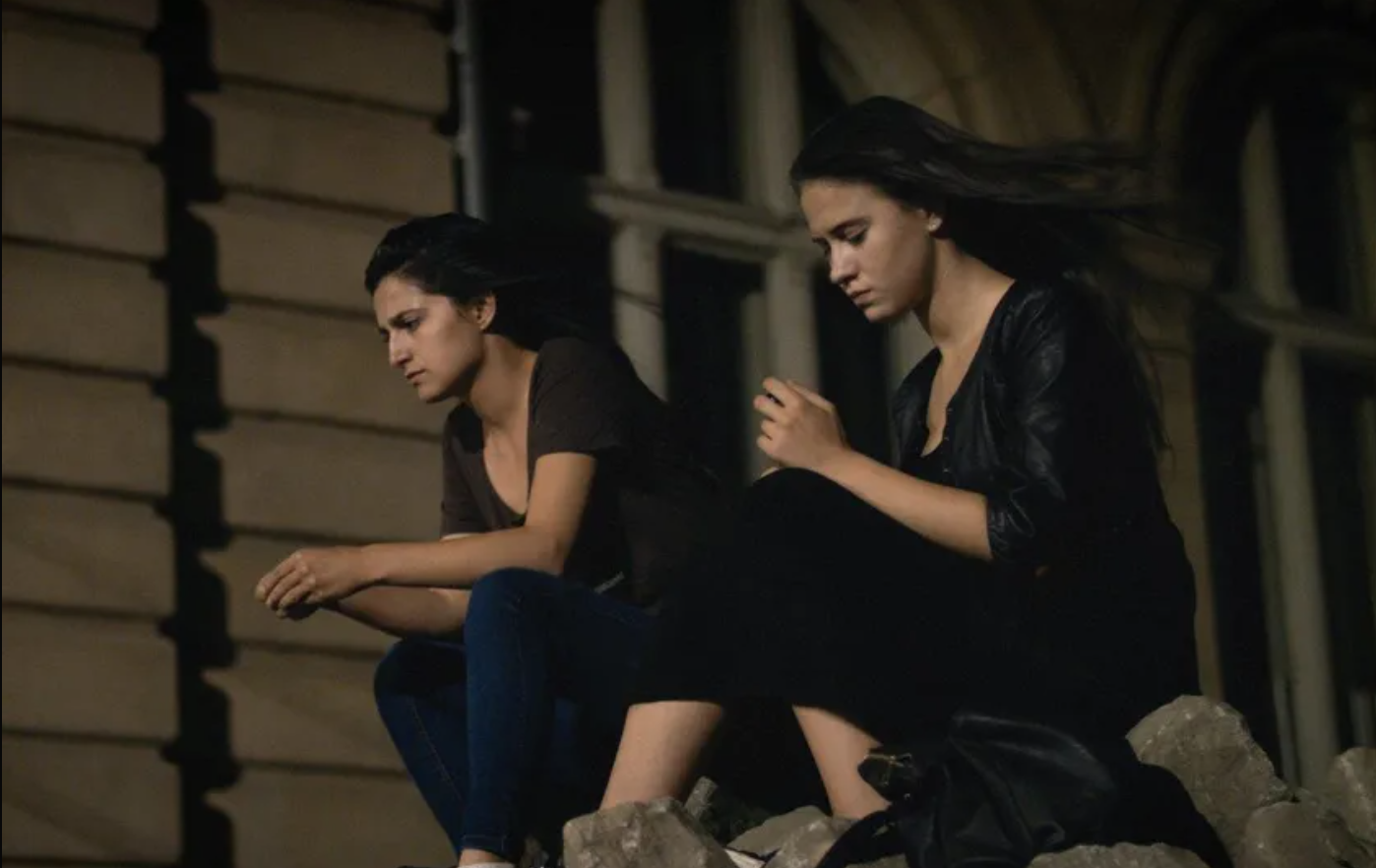Cannes 2021: Women Do Cry
CANNES/MK2Mina Mileva and Vesela Kazakova's poignant and socially relevant drama, Women Do Cry, is a harrowing and often dark social call for change and understanding of the aids crisis and women's rights in Bulgaria. Installed in a delicate albeit engulfing feature with a strong aesthetic and a turning performance from breakout star of 2021 Maria Bakalova.
The social commentary involved is a mountain of context and subtle discussion throughout the picture. Granted, it takes precedent and ultimately defines the feature but an element of commentary that elevates and broods. At the same time, subtle cues are incorporated to build upon the messages writer-director Mileva and Kazakova continually bring out. These are intertwined in quite wonderful ways of production design, such as televisions and radios relaying messages of the outside world or the demonstrations of inequality and sexual harassment. On reflection, and assured reading this, one would think this social commentary is strong enough, but alas, it is the second layer to what Women Do Cry wants to discuss.
All themes and commentary aforementioned are brought forward in the first layer of narrative, of which follows Bakalova's Sonja, who, in the formulation of her adult life, is diagnosed with HIV by a cheating partner. Granted, this is not the single narrative on offer. Multiple more minor but nevertheless integral subplots bloom from this inaugural narrative. More so than not, and as strange as they can be, they consistently relate back to a central narrative of hardship within being a woman in Bulgaria.
Trials and tribulations are forthright throughout, and while loud and proud of acknowledging the existence, it does not shy away from showing such shame and social detriment said issues cause for families in this current climate. The mere acknowledgement of such is a death sentence within its own right – both socially and internally.
Elements are expertly handled with nuance and poignancy within this picture. Sequences depicting both respective circumstances are curated in an honest and often harrowing approach. If it is neglecting government health services or mental breakdowns processing devastating news, Mileva and Kazakova project said moments delicately but with a hard-hitting punch when needed.
Of course, it must be acknowledged the depth brought forward by the performances that heighten said moments. Maria Bakalova, for one, puts forward a performance nothing short of incredible. The Borat 2 actress showcases an excellent emotional and dramatic range. Scenes of seismic emotional nature are headlined with perfection that often bounces from external devastation to internal manifestation courtesy of their developed context.
Granted, throughout, the performances overall are terrific. In Bakaolva's explosiveness, her on-screen sister Lora played by Raltisa Stoyanova, expresses the more internalised process of what could be considered grieving. Surrounded in the world they live in and the social gravitas such a condition her sister is diagnosed with, Stoyanova's curation of her character is arguably the greasiest regarding the nuance of grieving a death to fighting for a life.
Again, it is a film that understands and consistently reflects mood through character and production design and grounded camerawork as well as cinematography from Dimitar Kostov. Of who utilises almost documentarian aesthetics to engulf the audience into this already gripping world. Prominent close-ups equally swell the audience and drain them as the world does to these characters. These are elements that do, on occasion, swallow the audience totally and craft a trapped atmosphere that chokes the life out of the viewer.
Nevertheless, that is precisely what Women Do Cry wants and needs to do towards its audience. While this is entertainment in cinematic form, there is a cultural and moral stand against discrimination of being a woman in this society, and on reflection, does a vital job of showcasing this pain and often miserable existence, perhaps even changing others for the better of some.


